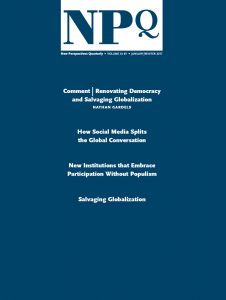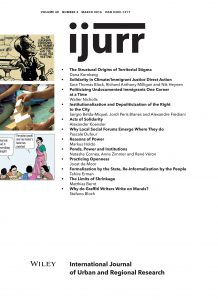Economics Focus
As many of our readers may have noticed, we have recently enjoyed a series of guest posts from scholars in the field of Economics. Unfortunately for us, their own site is now ready and they will be posting on Economics Focus from now on. Our interdisciplinary visitors have given us some great content and stimulated some fascinating debate. I would like to thank them personally for all of the wonderful posts they have given us and hope that, even though...




1754-9469/asset/society_affiliation_image.gif?v=1&s=9197a1a6ba8c381665ecbf311eae8aca348fe8aa)